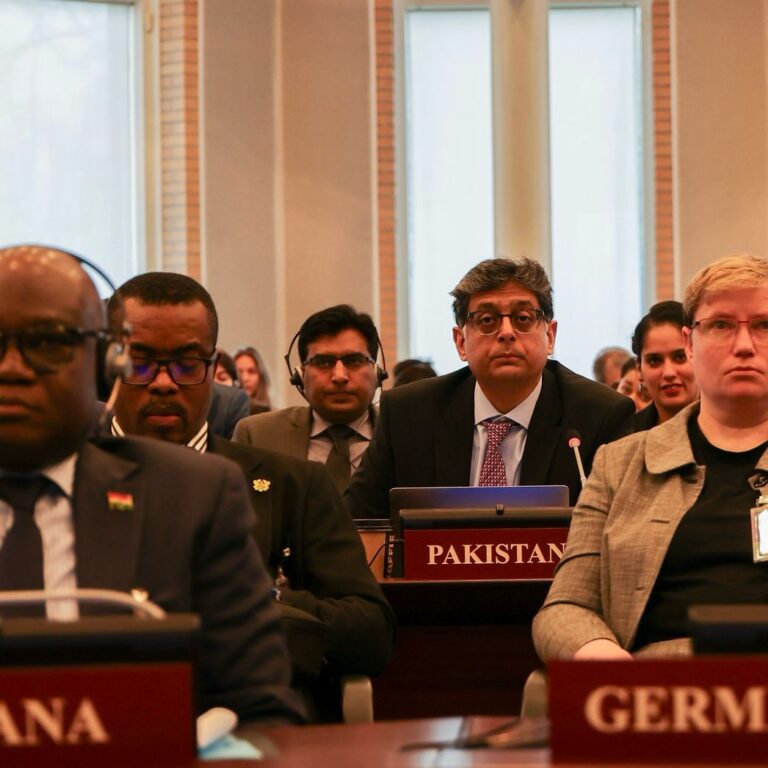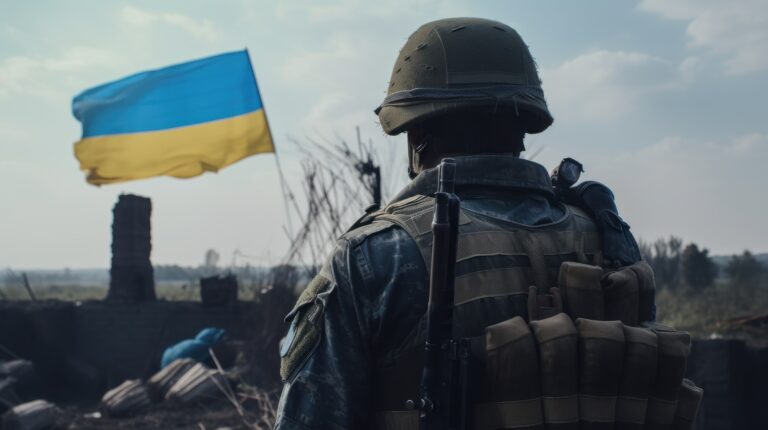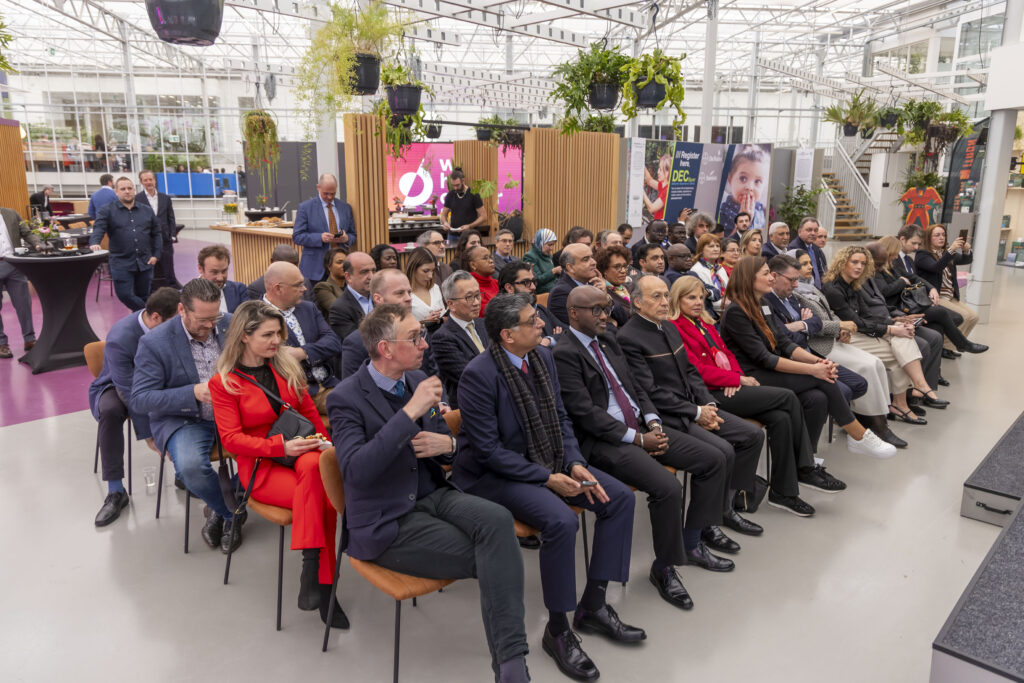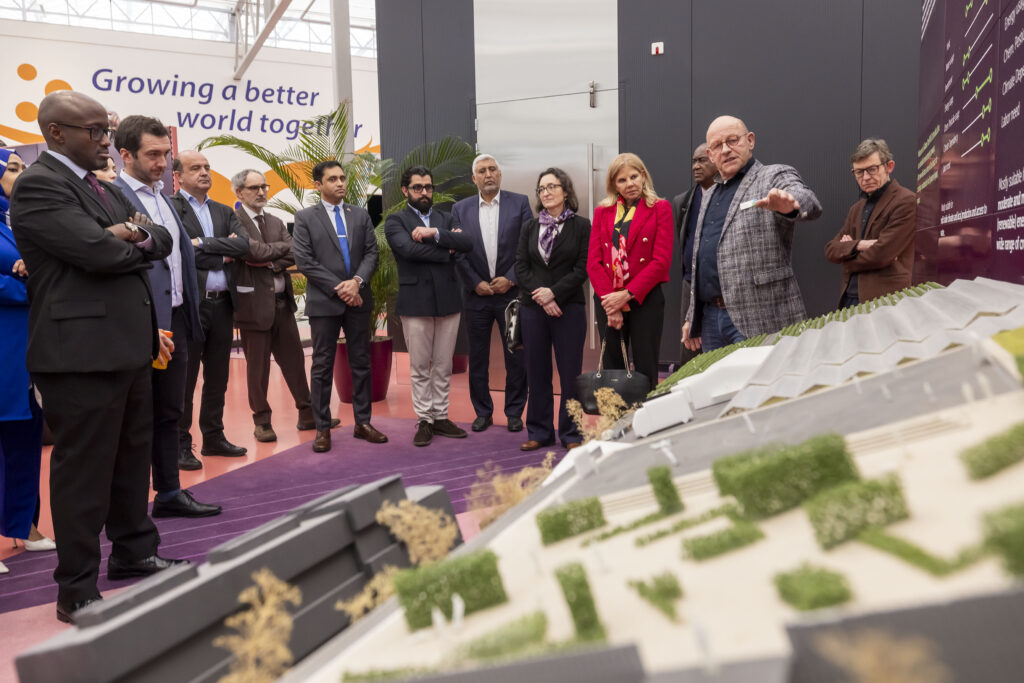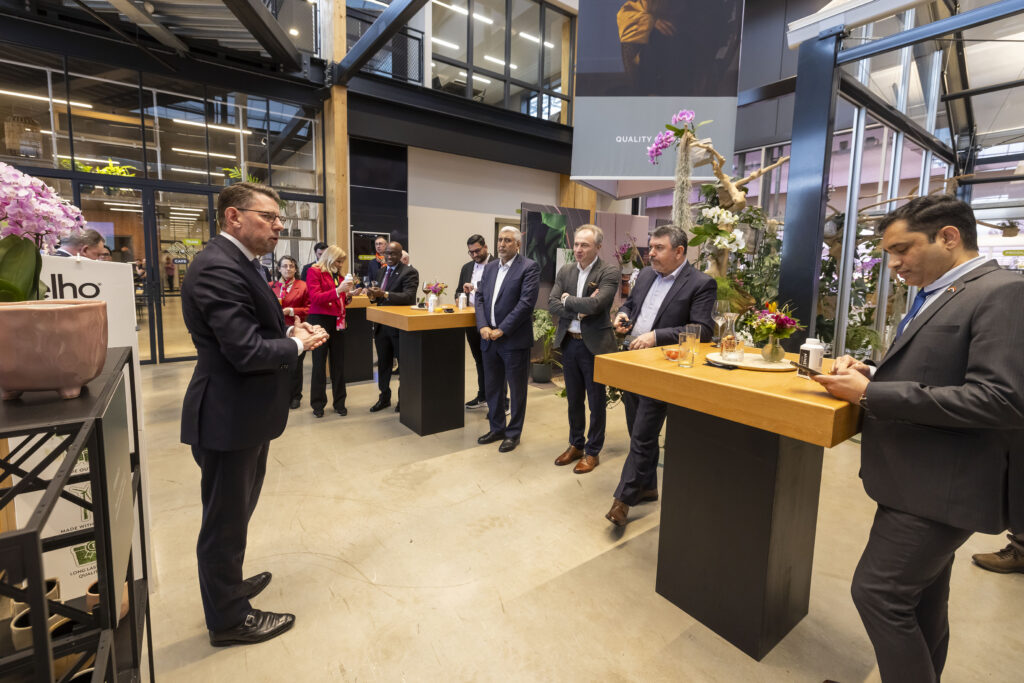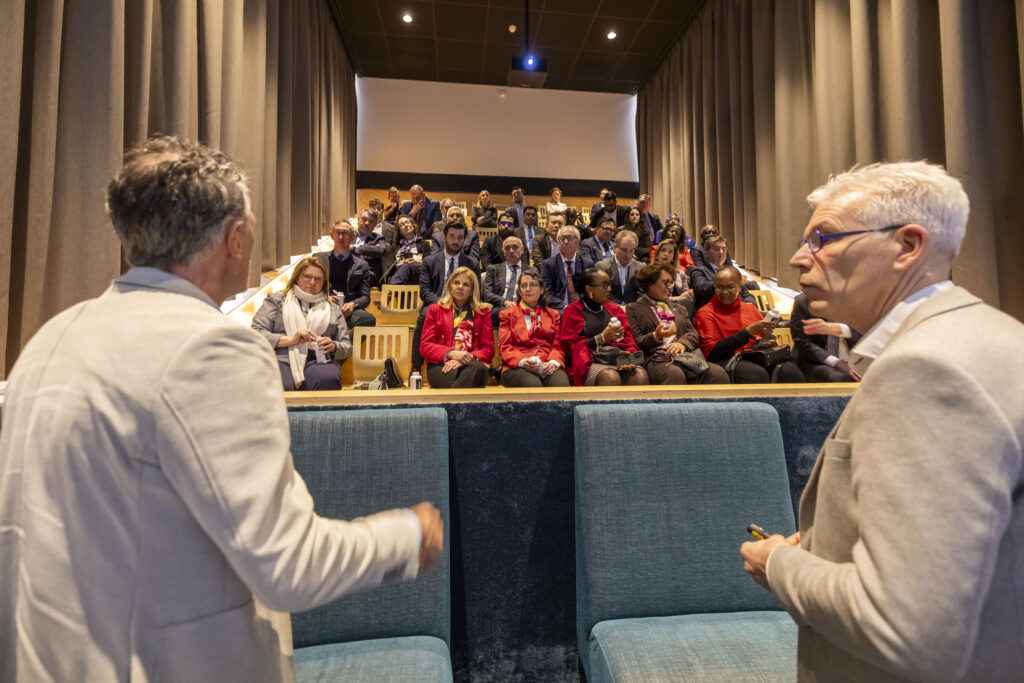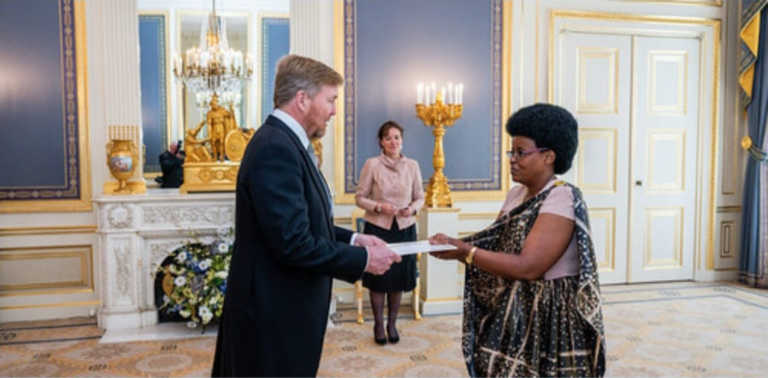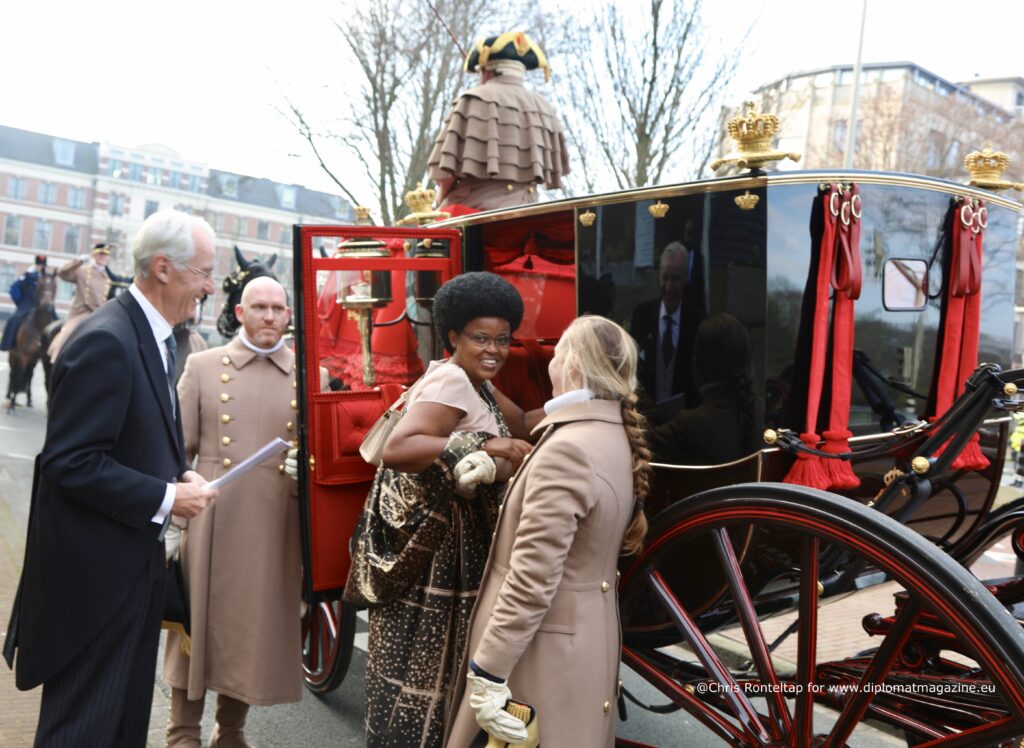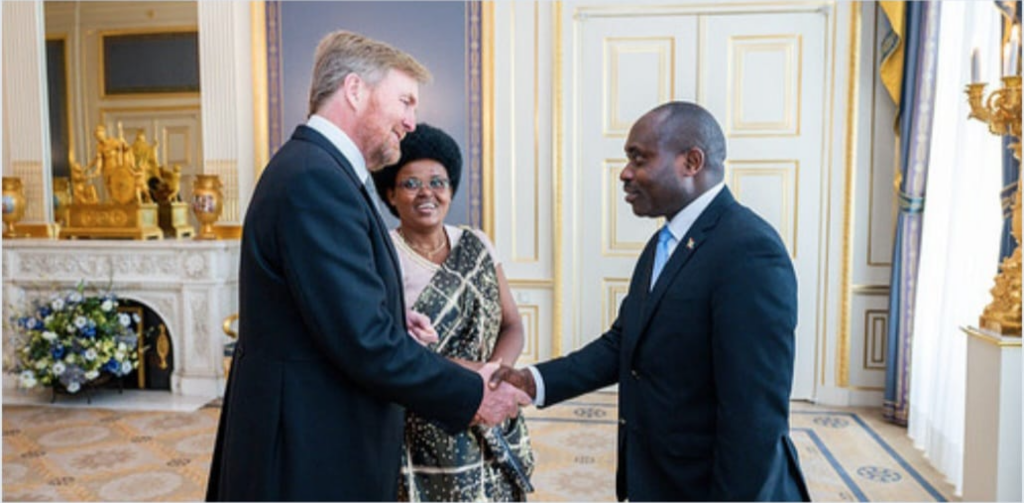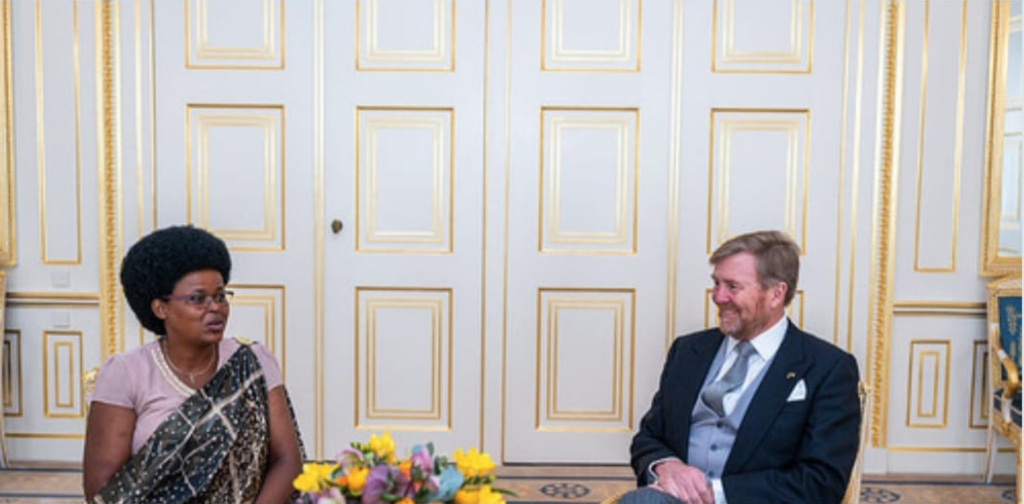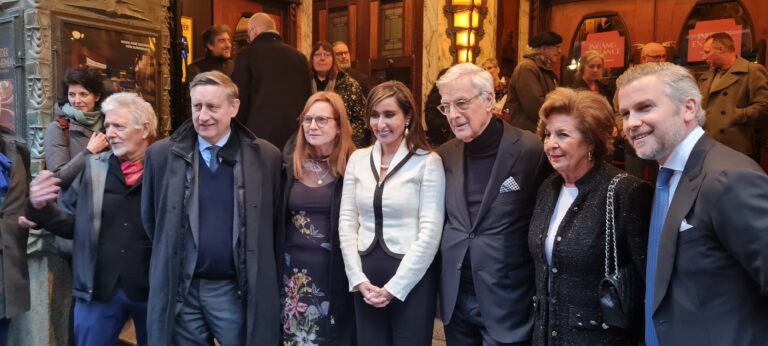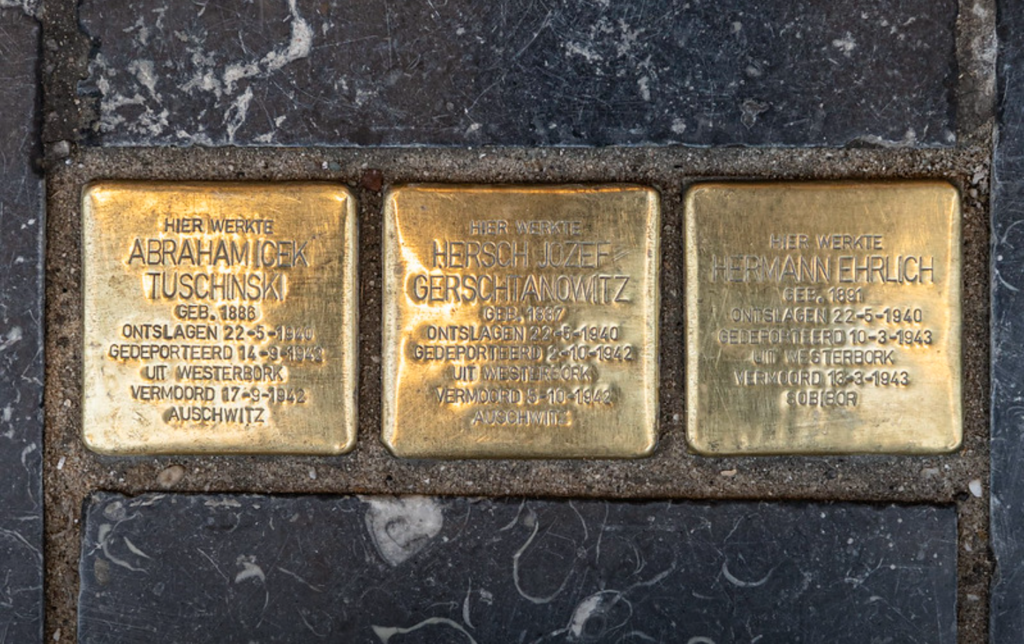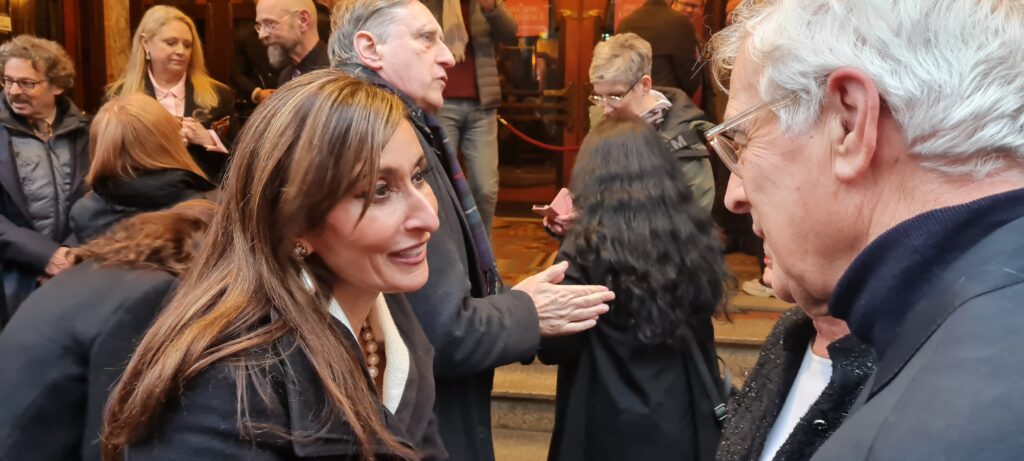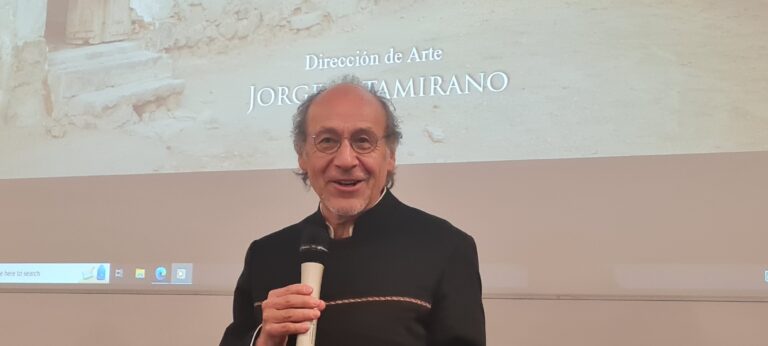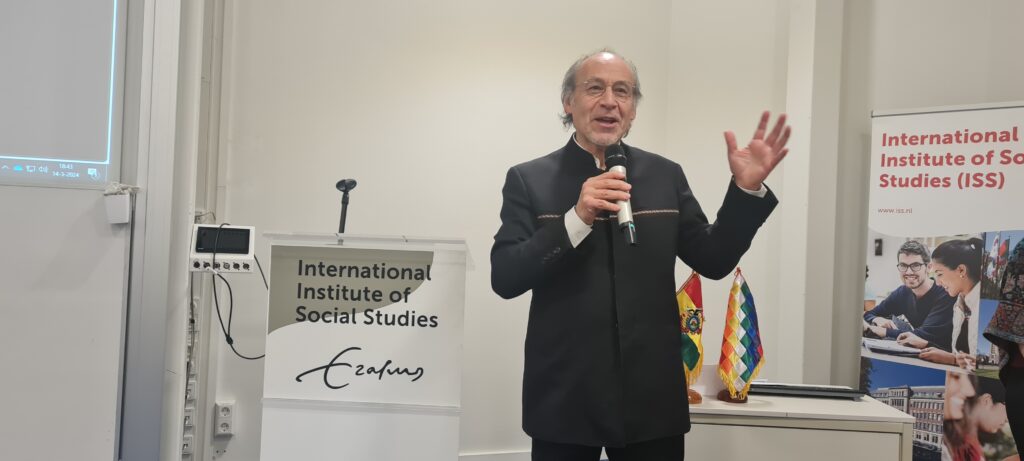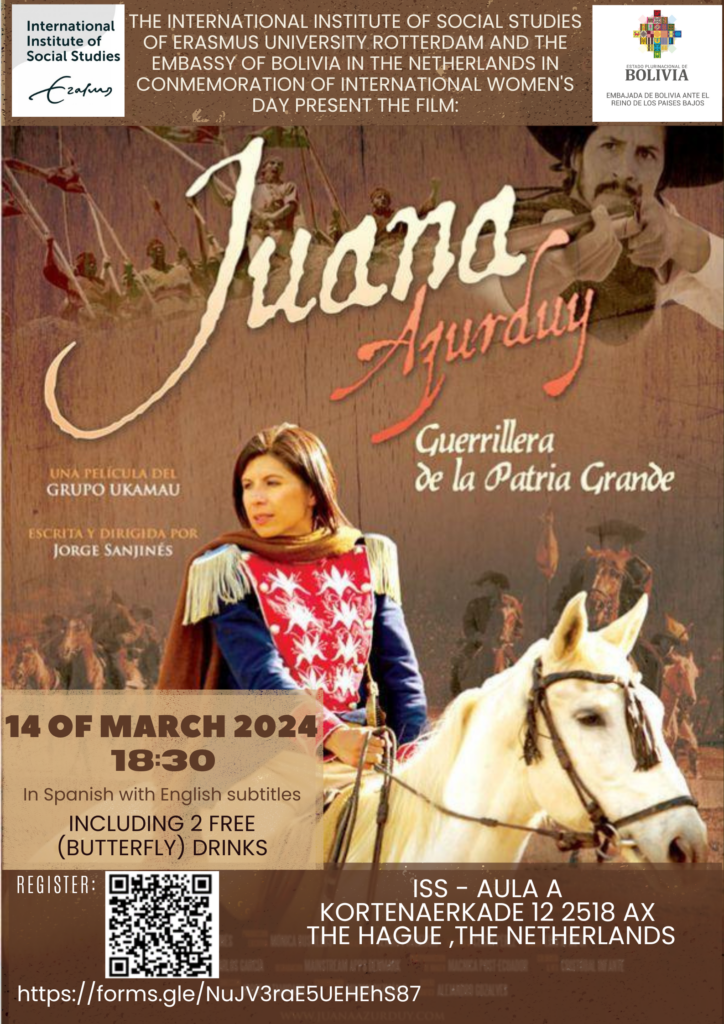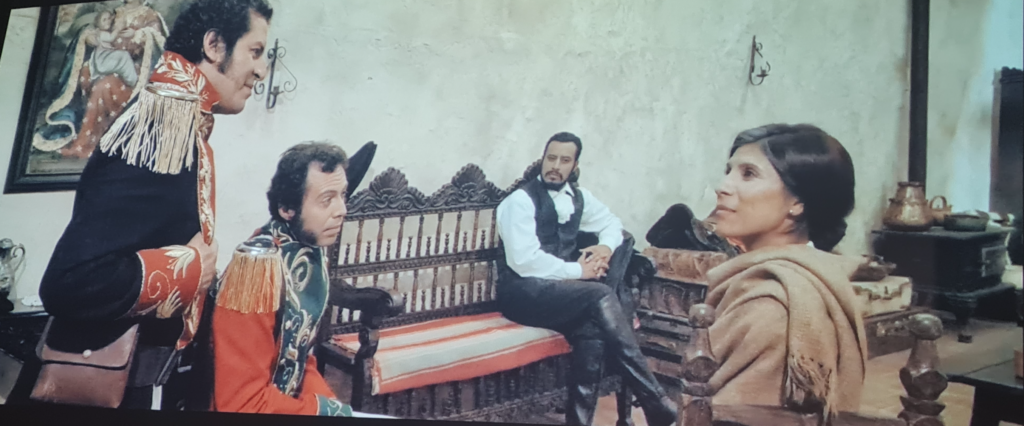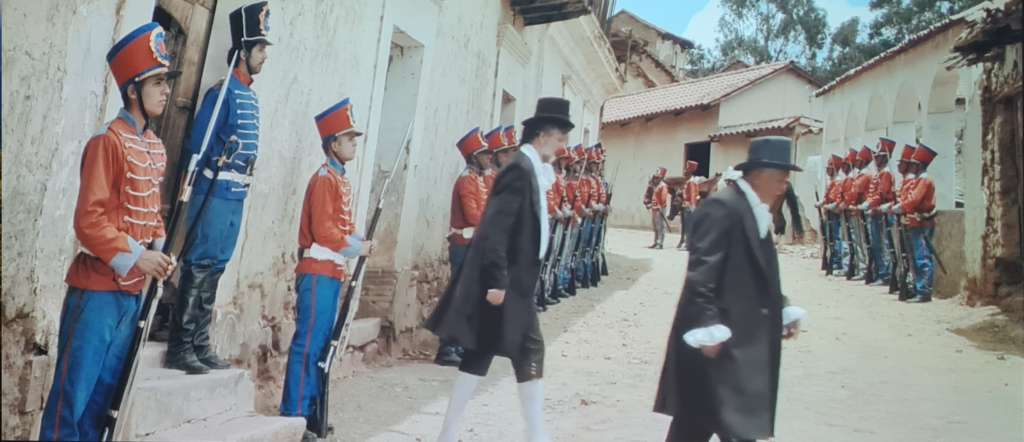Msgr. Prof. Dr. Franjo Topić, prominent Catholic theologian, honorary president of the Croatian Cultural Society (HKD) “Napredak” and honorary president of the Pan-European Union of BiH, presents an analysis entitled “Swiss model for Bosnia and Herzegovina” in which he shares his thoughts on the exhaustion of the existing and the need for a new, fairer and more functional constitutional arrangement for Bosnia and Herzegovina.
By Msgr. Prof. Dr. Franjo Topić
Almost thirty years after the signing of the Dayton Peace Agreement, Bosnia and Herzegovina (BiH) is still in a sort of coma, and some say that there has never been a worse crisis, which is often said since the war. This text[2] is not daily-political and should not be interpreted as such, but the thinking of an engaged intellectual who cares about all of Bosnia and Herzegovina and all the citizens and peoples of this country, and especially about peace in BiH and the world. As the famous saying goes: Without a peaceful Bosnia, there is no peaceful Europe. Now BiH has a chance on March 21, 2024 to start negotiations for joining the European Union, which is truly the most important political fact since Dayton.
There are no ideal solutions, but it is clear to everyone that this type of entity arrangement is exhausted and that something should be changed and improved. And the architect of the Dayton Agreement in 1995 – which stopped the war, and that should always be emphasized, because it is still the most important thing – the American diplomat Richard Holbrook spoke and wrote that Dayton 2 should be organized, which some a priori reject, and they should not, because the search for good solution is probably the obligation of all those who are active in public.
This kind of BiH is not functional as a state, it is not fundamentally fair, because many do not have equal rights in all parts of BiH and it does not ensure a good future for Bosnia and Herzegovina. It is useful to recall an event that was very important in its time, and its proposals are still relevant today and, by all accounts, offer a better solution to the organization of BiH than the current one. It is essentially the Swiss model of cantonization of the entire BiH. Especially at the beginning of the independent BiH, Stjepan Kljuić said that BiH should become like Switzerland. Nothing is easy to change, but it is possible. Today’s Switzerland was not easily created either, but one should not get tired and we need to work on it. First of all, we need the political will of the leaders, and a lot of work by experts to change this constitutional model to the satisfaction of all citizens and peoples of BiH, as well as the international community. What is good from the Swiss constitution should be thoroughly rewritten. The fact that a lot has changed since the Dayton Agreement shows that changes are possible. And that should be done jointly by actors similar to Dayton 1.
Croatian Coordination Committee
We will describe the broader context, because even without context, things cannot be properly understood. Let’s remind ourselves. Bosnian Serbs rebelled against independent Bosnia and Herzegovina (referendum on March 1, 1992) then together with the truncated Yugoslavia (i.e. Serbia and Montenegro) they started a war in BiH. As is known, the conflict between the Croatian Defense Council (HVO) and the (Bosniak) Army of the RBiH started in April 1993. As the situation in Sarajevo and Bosnia and Herzegovina deteriorated and became increasingly complicated, with the risk of total war and the disappearance of BiH and Bosnian Croats, Sarajevo’s Croat and Catholic organizations worked to suppress the conflict at least in Sarajevo, and to resolve many open issues.
It should be mentioned, because it is important for a better understanding of the text, that Sarajevo lived under complete siege, that there was no electricity and water for months, and that in 1993 humanitarian aid usually consisted of 200 grams of rice per week. For at least two years, with various fluctuations, 1 kg of rice cost DEM 60, sugar 50 – 60, a liter of oil 50, a kilogram of coffee 120 DEM, etc. And the worst thing is that every day people died all over BiH, and at that time the end of the war was not in sight. In August 1993, the establishment of the coordination body of the Croatian parties, the Church and HKD Napredak was initiated.
After several meetings, on September 10, 1993, due to the risk of conflict between the HVO and the RBiH Army in Sarajevo, the Croatian Coordination Committee (HKO) was founded, consisting of: Vrhbosnia Archdiocese (Rev. Nikola Lovrić), Franciscan Province (Fr. Ljubo Lucić), Caritas (Rev. Franjo Tomić), Croatian Democratic Community of the City of Sarajevo (Tomo Obrdalj), Croatian Peasant Party of BiH (Ivo Komšić), Croatian Defense Council from Sarajevo (Slavko Zelić), HKD Napredak (Franjo Topić) and Napredak’s Croatian Chamber of Commerce.
Tvrtko Nevjestić, president of the Chamber, was elected president, vice-president was the author of these lines, and Hrvoje Ištuk was the secretary. HKO was the real and authorized representative of all members, which is a phenomenon suitable for a broader study. It met often, and sometimes daily, in the Vrhbosanska Theological Seminary and in HKD Napredak, which operated in the Theological Seminary. All decisions and announcements were made by consensus, never by outvoting. Talks were held with all important domestic and international factors (T. Nevjestić, Išječak našeg vremena, in: Napredak’s Croatian National Yearbook for 1997, 372-376). According to the assessment of the participants and witnesses of that difficult time, the HKO played a decisive role in preventing a conflict between the RBiH Army and the HVO in Sarajevo, and some wanted it to happen and worked on it on both sides. If there had been a conflict, many things would have been more difficult and complicated, not only in Sarajevo as the capital, but also in the whole of BiH.
The Assembly of Croats of Bosnia and Herzegovina
The HKO was the organizer of, and HKD Napredak logistically supported the Assembly of Croats of BiH in Sarajevo on February 6, 1994, the day after the horrific massacre at the Markale market. The Assembly adopted the documents that were also present at the Geneva negotiations. At this assembly, the Croatian National Council (HNV) was elected with Dr. Ivo Komšić as its first president, and it continued to achieve similar goals and tasks as the HKO, but without the official representation of the previously mentioned organizations and institutions, which were now replaced by individuals. In his memoir, Dr. Komšić talks a lot about the HKO, HNV and the Assembly. The HKO played its important role and, which rarely happens, ended itself. It should be said that Steve Bubalo, in addition to coming from America with his wife, Pero Radielović and Valentino Ivanković, was a donor to the Assembly.
The Assembly was attended by many distinguished persons from the public life of Bosnia and Herzegovina and the Republic of Croatia: Drago Stipac, the legendary HSS member, Vlado Gotovac, Miko Tripalo, Stipe Mesić, Zvonimir Šeparović, etc. Also, Haris Silajdžić, then Prime Minister of the RBiH Government, Ejup Ganić, member of the RBiH Presidency, Miro Lazović, speaker of the RBiH Parliament, bishop Pero Sudar (archbishop Vinko Puljić was abroad), Mariofil Ljubić, deputy speaker of the RBiH Parliament, etc. As someone wrote: all of the Croatian intelligentsia and artists were present. The Assembly was attended by various ambassadors and international representatives headed by the American ambassador Victor Jackovich, and the French Henry Jacolin, who was particularly significant because the French UNPROFOR controlled the Sarajevo airport and mostly all of Sarajevo. Sergio de Mello, the representative of the United Nations for the former country, also played an important role, enabling the arrival of about a hundred people on UN planes from Zagreb, Split and Frankfurt, which at that time was a real undertaking because even ministers could not easily obtain permission for those flights.
Fruits of the Assembly
The Assembly and its results were eagerly awaited by many domestic and foreign politicians.
The basic proposal was to organize Bosnia and Herzegovina according to the Swiss model with ten cantons, three Croatian (Posavina, Travnik and Herzegovina), three Serbian and three Bosniak, and with Sarajevo as a district. The documents and positions of the Assembly significantly influenced the cessation of the conflict between the RBiH Army and the HVO, and the conclusion of the Washington Agreement, which definitively ended the conflict between the HVO and the RBiH Army, i.e. Bosniaks and Croats, and was the basis for the establishment of the Croat-Bosniak Federation. If it weren’t for the Assembly, there would have been a massacre of unprecedented proportions in the Lašva valley. According to foreign observers, there were about 30,000 soldiers of the RBiH Army in the besieged Lašva valley. Had Central Bosnia collapsed, the question is whether there would be Bosnia and Herzegovina at all?
Zagreb politician and publicist Slavko Goldstein wrote that this Assembly introduced into the Croatian public “a breath of almost forgotten optimism” (Croatia after the agreement, in: Erasmus 6/1994, page 20). Peter Galbraith, the American ambassador to Croatia at the time, asserted: “It was also important that a group of Croats appeared who proposed different ideas… So the Assembly in Sarajevo was very important… Also for the discussion of maps, their ideas about it were especially important. They were the basis (for the discussion behind the creation of the federation). They also gave importance to the issue of Posavina, which was not the case in previous discussions” (Erasmus 6/1994, 14-15).
Declaration of the Assembly
The Declaration of the Assembly contained the following points:
- The state integrity of BiH is a vital interest of the Croatian people;
- Urgent and absolute cessation of all war activities;
- Continuity of statehood of all three peoples and their equal rights must be ensured in BiH;
- Any solution to the crisis in BiH that sanctions ethnic persecution and enables the continuation of ethnic cleansing is rejected;
- The return of all exiles and refugees to their homes is demanded;
- It is proposed to organize BiH federally on a cantonal basis.
Wouldn’t this arrangement be better than what we have today? With the existing two entities, BiH does not have a good and normal future, as we see every day. Even in the current negotiations, there are two practically opposed concepts: one exclusively ethnic, and the other exclusively “civil“. It should be clarified because there is often confusion around this term: in the political sense, civil in this context means one man – one vote, which is unacceptable for this multinational country. Entities are practically “independent” states and can hardly function solidly together. One of the main arguments of some from the international community why the Republika Srpska entity should not be reformed is that it is functioning. Functioning is a very important argument, but it is not sufficient, nor is it the only one, because North Korea is also functioning – of course, we are not comparing the entity Republika Srpska or Bosnia and Herzegovina with North Korea.
Combined democracy
Bosnia and Herzegovina should be organized, in our opinion, on the principle of “combined democracy“, i.e. personal and national rights should be ensured. The national element will be important here for a long time, and we must not run away from it. The Presidency of BiH and the House of Peoples of BiH ensure symbolic equality at the state level, and the cantons ensure national rights on the ground: education, culture, etc.
It should be possible for each people to elect its own member of the Presidency of BiH, experts should work it out so that it is not to the detriment of Croats or the whole of BiH. It is a frivolous argument that this is a further division of BiH, as if it had not already been divided in half! And many do not even mention this main division. Why? We have already mentioned that the International Community (domestic actors did not want to and were not able) did the most important thing when it stopped the war.
But that is not enough, now we need to organize Dayton 2 – let us repeat – to make the country as functional, fair and cheap as possible. It is clear that domestic politicians are primarily responsible and that they should find a good compromise solution. And when some criticize the international community, they should not forget that even now without the International Community it would be harder and worse to live. Who prevents domestic leaders from reaching an agreement and leaving the international community without a job? It is often forgotten that without the presence of the international community there would be much less foreign investment.
But the international community is saying in vain that domestic politicians should come to an agreement. If they wanted to and were able, they would have done it in so many years. The international community is also co-responsible because it co-created the Dayton Peace Agreement and is also co-responsible for its functioning and improvement. And it is the responsibility of local leaders and the International Community to ensure that conflicts do not arise here, as they are essentially being prepared by constant arguments. Peace is a work of justice and has no price. We will repeat once more: Peace is not everything, but without peace everything is nothing!
We hope and wish that by the next text, Bosnia and Herzegovina will start negotiations for accession to the European Union.
About the author:
Msgr. prof. Dr. Franjo Topić was born on March 13, 1953 in Kasapovići/Novi Travnik. He completed high school in Subotica (1967-1971), philosophical and theological studies at the Vrhbosna Catholic Theology in Sarajevo (1971-1977), and was ordained a priest of the Vrhbosna Archdiocese on June 29, 1976.
He was sent to postgraduate studies at the Pontifical Gregorian University in Rome in 1978, which he completed with a doctorate (1985) on the topic L’ uomo davanti alla rivelazione di Dio nel pensiero di Hans Urs von Balthasar.
From 1985 to 1991, he taught at the VCT in Sarajevo: Ecumenical Theology and Eastern Theology, and from 1985 he taught Ecclesiology, History and Doctrine of Islam, Credibility of Christian Revelation, and History and Doctrine of Religions (until 2011).
From 1986 to 1996, he was prefect of studies and secretary of the VCT.
He was a member of various church councils and community committees. He published in various magazines in the country and abroad.
In 1995, he was awarded the “Titus Brandsma” international award from the International Catholic Union of the Press /UCIP/ “because in his writings and publications in extremely difficult conditions he advocated for the preservation of humanity and the Christian spirit”.
He has been the president of the Croatian Cultural Society “Napredak” since its restoration in 1990, and now serves as the honorary president of “Napredak” and the honorary president of the Pan-European Union of Bosnia and Herzegovina. He is a member of the European Academy of Sciences and Arts.
Published by the International Institute for Middle East and Balkan Studies IFIMES. The article represents the author’s position and does not necessarily reflect the position of IFIMES nor Diplomat Magazine.
Ljubljana/Sarajevo, March 15, 2024
Footnotes:
[1] IFIMES – The International Institute for Middle Eastern and Balkan Studies, based in Ljubljana, Slovenia, has a special advisory status with the Economic and Social Council ECOSOC/UN, New York, since 2018 and is the publisher of the international scientific journal “European Perspectives”.
[2] The text is a reminder of three important events: the anniversary of the Assembly of the Croats of Bosnia and Herzegovina (February 6, 1994), the Independence Day of Bosnia and Herzegovina (March 1), the anniversary of the Washington Agreement (March 18, 1994)

